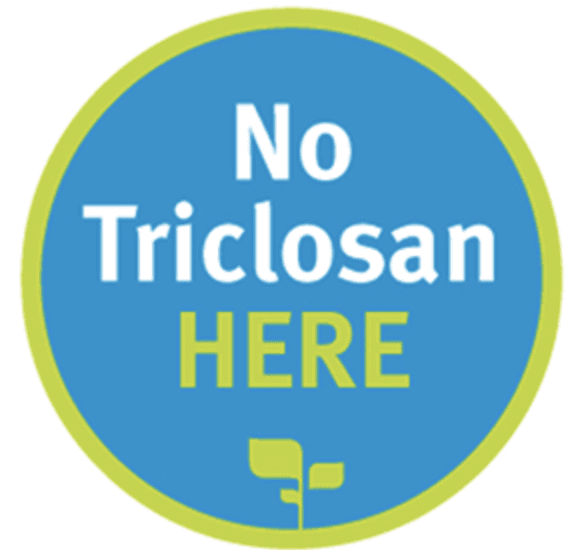Uses: Triclosan is commonly used in various forms of deodorants, cleaning products, personal care products (soap, shampoo, etc.), detergent, tissues, antiseptics, anti-bacterial products, toys, bedding, clothing, paint, furniture, and SO MUCH MORE.
Human Risks: Triclosan, which is a hormone disruptor and carcinogen, can easily pass through the skin. In fact, a CDC study of over 2,500 Americans found that Triclosan was present in 75% of the participants’ urine, meaning that the majority of the American public faces regular exposure to this dangerous chemical. It can cause liver and respiratory issues and can also disrupt the thyroid functions in your body. This is an issue because the thyroid sends signals to your organs that allow them to function correctly. Triclosan exposure has also been linked to a weakened immune system as well as an increase in allergies and eczema in children. One final major effect is reproductive harm.
Environmental Risks: Triclosan often goes down our drains from various products, where it can then build up in the environment, contributing to “antibiotic-resistant” bacteria and causing permanent damage to aquatic life.
How to Avoid: Forego the use of “anti-bacterial soap”. The American medical association actually advises not to use this soap at home. It is not necessary. You should also consider switching toothpastes if you use Colgate Total. Terms like “odor-fighting” or “stays fresher longer” can also be indicators that Triclosan is being used in cleaning or food products.
